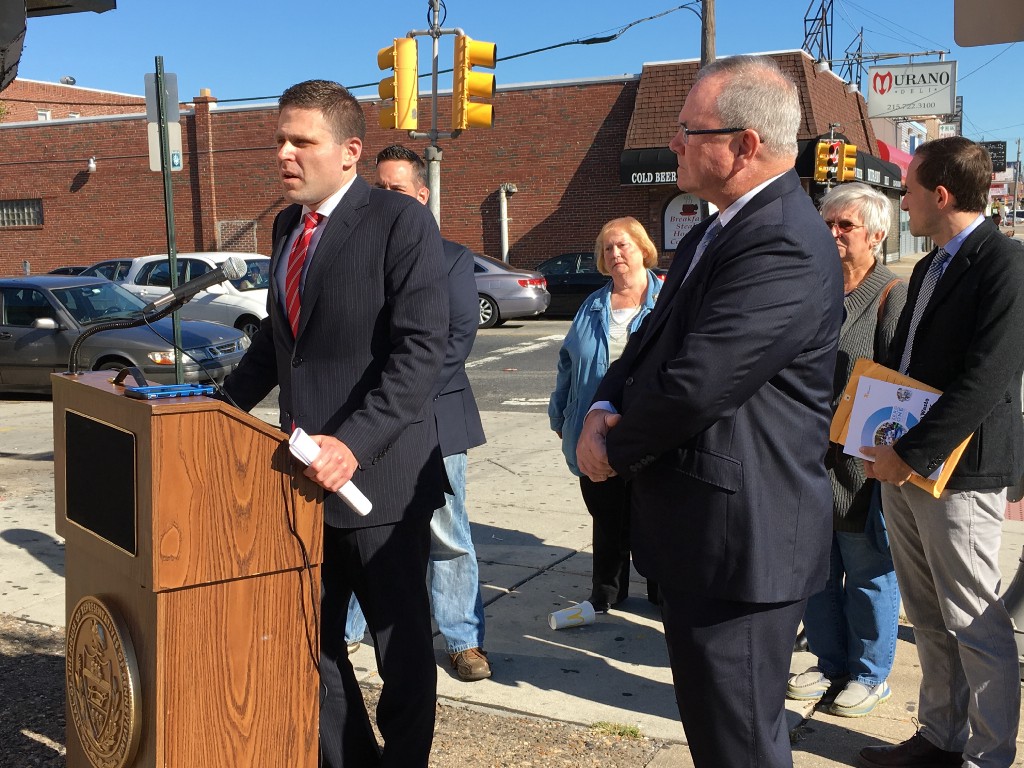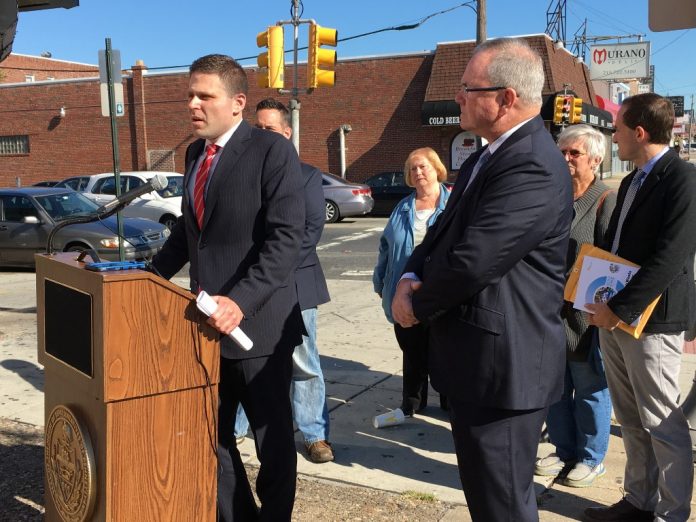House Bill 1812 groups littering, loitering and disorderly conduct under the umbrella of ‘chronic nuisances,’ and creates incrementally higher penalties for such incidents with this grouping.

State Reps. John Taylor and Jared Solomon last week held a news conference to discuss legislation written to address chronic nuisance issues plaguing communities throughout Pennsylvania.
The news conference took place at Castor and Magee avenues.
The lawmakers are cosponsors of House Bills 1812 and 1813, which would increase penalties and fines on nuisances and remit a portion of the increased fines back to the municipalities for litter remediation efforts.
The bills would amend the Crimes Code.
“During the last 10 years, we have provided innovative new laws to help local governments, like Philadelphia, fight blight,” Taylor said. “This legislation gives us new tools in that struggle. Nuisance acts depress property values and deter investment in our communities, large and small.”
Solomon, whose office organizes regular cleanups, said the nuisances threaten the public health, safety and welfare of residents in neighborhoods across the state. The two bills, he said, would not only assist with decreasing petty acts, but help improve the appearance of big and small communities in all 67 counties.
House Bill 1812 groups littering, loitering and disorderly conduct under the umbrella of “chronic nuisances,” and creates incrementally higher penalties for such incidents with this grouping.
The bill increases existing fines for the following offenses when committed two or more times within a two-year period: graffiti, scattering rubbish, public drunkenness, loitering and public nuisances.
Fines will be doubled for a second offense, and tripled for a third or subsequent offense. Under current law, the fines vary. The first offense for a non-traffic summary offense is $300, for loitering it is $2,500, and an offender convicted of being a public nuisance faces a fine of $5,000.
House Bill 1813 increases the penalties for littering in an attempt to deter the act and to help local municipalities eradicate this behavior.
The bill amends the Crimes Code to increase the minimum and maximum fine amounts for scattering rubbish. The fine for the first summary offense, currently $50 to $300, would be increased to $100 to $500. The second and subsequent offenses — a third-degree misdemeanor — would be increased from $300 to $1,000 to $500 to $1,500.
The bill also dedicates one-third of any fines collected for the crime of scattering rubbish to the municipality where the offense occurred for litter remediation, which includes purchasing, maintaining or emptying outdoor trash cans, providing sweeping or cleaning services for sidewalks and streets, and litter prevention programs.
“This sets a tone. It holds people accountable,” Solomon said of the legislation.
“By increasing the penalties for causing chronic nuisances, these bills will raise awareness of the problem these nuisance crimes create for law-abiding residents and business owners in our communities, and they will give new tools to local municipalities to help eradicate these unlawful acts,” Taylor said.
Taylor is pleased that the effort is bipartisan, adding that the goal is to improve quality of life. He said, if the bills pass, a public information campaign will follow, and lawbreakers will be prosecuted.
“It sends a message,” he said.
Nic Esposito, director of the city’s Zero Waste & Litter initiative, welcomed people to visit cleanphl.org to learn more about the city’s effort.
Matt Rossi, operations manager for Nick’s Roast Beef, said the legislation is welcomed by members of the revived Castor Bustleton Cottman Business Association.
“We’re excited to see the future,” he said. ••






